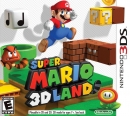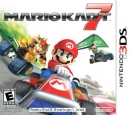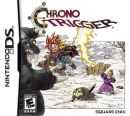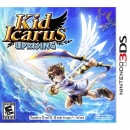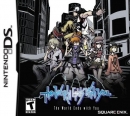"FFXII, a bold game stuck between brilliant reinvention and tragic failure"

No other game series divides quite like Final Fantasy. As with Mario and Ryu, its name is so linked with its genre that your affection or dislike towards one is tied to that of the other, and the Japanese RPG is something everyone loves to love or loves to hate. Detractors argue that the series’ showboating technical advances bear false witness to underlying mechanics that should have been consigned to the scrapheap long ago. Worse, while the characters and details of each release may vary, the basics never yield to progress or changes in taste, a stubbornness that’s both unattractive and unfashionable.
Fans counterattack by pointing to multiple millions of sales, the top slots in so many ‘best of all time’ polls and the emotional sucker-punches that leave adults in tears. But these are weak justifications for the series’ wearing adherence to tradition, which becomes harder to justify as it continues to echo itself from release to release. And especially so when considering its maker, Square Enix, already answered every single one of those gripes in a game that sought to change the very essence of Final Fantasy, to rebuild it from the ground up and so to undo its problems.
A game whose originality and ambition few noticed and fewer celebrated. A game that, by any other name, might just have converted JRPG cynics forever.
Final Fantasy XII’s failure to do so is understandable. The showy fantasy world, majestic soundtrack, spiky hair-dos and excess of belts and buckles point to more of the same. Few hecklers, weary of saving the world on predictable and repetitious JRPG terms, saw anything on its horizon to suggest the 12th journey might offer something different. Likewise, fans hoping for a return to tradition after the previous game’s sojourn into MMO lands were disorientated by its realtime, managerial fight system and a story that focused more on geopolitical drama than wizards and crystals.
By failing to interest those whose reservations it tried to address, and by alienating those for whom change was both unnecessary and unwanted, Final Fantasy XII could be considered a failure. But the questions it asks of itself and its series about the boundaries of identity, about how far you can stray from your origin before you become something else, are fascinating ones, pertinent to all of gaming’s ageing institutions. Moreover, the answers it offers are often nothing short of brilliant.

Producer and director Yasumi Matsuno, the man responsible for finding these solutions, began by reassembling the team behind his seminal titles Final Fantasy Tactics and Vagrant Story. In an unprecedented move for the core series, he chose to set the game in a familiar land, Ivalice, the kingdom of his previous works. This was just the first in a series of decisions that took the series farther away from its roots than ever before, to a place where, arguably, little more than the common motifs of chocobos and orphans, phoenix downs and airships tether the game to its branding.
The story opens, as with so many of Matsuno’s games, with a royal assassination, a murder to move hearts and armies. It sets in motion political machinations in which the game’s protagonists soon become critical cogs. While viewed from Final Fantasy’s traditional perspective of a ragtag band of gently anarchic fighters, drawn together for different motivations but co-operating for the greater good, Final Fantasy XII is arguably the least personal of the series. Its real drama centres upon power and dominion, the elevated struggles of royalty, with less attention paid to those subjects caught in the ideological crossfire. This shift of focus gives the game a wholly different take on Final Fantasy’s usual orphan-to-conqueror narrative arc, even if its lead character awkwardly adheres to type.
Main protagonist and androgynous urchin Vaan is often criticised for lacking the ambition and flaws that make for an engaging lead. He may be spirited in the way that all Final Fantasy’s recent lead characters have been, but without a believable motivation for becoming involved in the grand drama of dukes and princes he’s overshadowed by most of the other six characters who join your party, especially the older Balthier and his partner, the Björk-ish Fran. It’s here that the game’s reportedly strained development makes itself evident in the player experience. Matsuno originally intended for Balthier, the middle-aged sky pirate, to assume the lead role in the drama. However, the decision was overruled, higher-ups pointing to the relative failure of Vagrant Story, which featured a similarly mature lead, as evidence that the game needed a younger, more effeminate poster boy for its target demographic. Balthier was sidelined to make way for Vaan, a composite creation made of teen girl dreams and marketing man visions, vanilla to the bone. Matsuno left the team two thirds of the way through development, ostensibly due to ‘poor health’ but more likely due to clashes over the direction the game and its story were taking.

Perhaps it’s for this reason that Final Fantasy XII’s plot never reaches a crescendo, the first half of the game heaving and groaning in an elaborate setup upon which the second fails to deliver. Indeed, Final Fantasy XII’s flaccid ending, which seems designed principally to split up the team in preparation for the DS spin-off rather than tie up the story, is indisputably the weakest of the modern games in the series. Nevertheless, the fact that the stark simplicity of the drama only fully reveals itself towards the game’s closing moments is testament to the quality of the localisation, one that bristles with character and intrigue from start to conclusion.
Final Fantasy XII’s cities, too, assume character-like roles. The new focus on an austere, historical setting is reinforced by their design, which draws from mediaeval Mediterranean and Arabic culture in both architecture and ambiance. As with Vagrant Story, the team visited European cities for first-hand inspiration, the result a sharp sense of verisimilitude that infuses every cobblestone and archway in the bustling market town, Rabanastre, and every Sanskrit phrase that fills the air in Bhujerba. The geography takes on a historical dimension of the sort readily evident in reality, but rarely in games. Furthermore, by unlocking the camera for the first time, Square Enix opens these exacting vistas up to examination from every angle, allowing players to explore Final Fantasy’s cities rather than merely pass through them, the new views unlocking layers of geographical personality and backstory.
While some of the big-picture failings of the game sting, its smaller triumphs are multitudinous and transformative. Chief among these is a battle system that turns Final Fantasy’s archaic line-dancing combat into something fresh and enthralling. There’s no fanfare transition from exploration into battle (and, indeed, with all enemies visible in the field, the series bugbear of random battles is also eliminated), combat instead taking place in the main game environment. In the shift, the player’s role is changed from firstperson combatant to that of a manager, setting Gambits, strings of AI logic that direct each character’s behaviour in battle. By building up these AI rules one by one, telling a character to, for example, use a potion when their health dips below 20 per cent or to attack the weakest foe first, the roles within the team are set, tweaked and perfected. It’s like the designers hand you the keys to the game’s internal logic, allowing you to program simple lines of code that, when stacked upon one another and multiplied across different characters, begin to function like mesmerising clockwork.

During fights, you are free to jump in at any point and take direct control of a character, ensuring that any failings in the preparatory logic don’t become terminal in practice. Weaknesses in your strategy become apparent in use and, like a coder, you whittle away the defects and flaws to improve your team’s chances, battle by battle. The result is a flexible, fluid system that facilitates a deep and enduring meta-strategy to the combat, something JRPGs have always struggled to deliver. This strong core is supported by the License Board, a set of visualised development trees for each character that allows customistion via new player-purchased abilities and upgrades. The freedom of the levelling system allows characters to be defined in radically different ways (or extremely similar ways), an unusual freedom in a genre which usually has players merely revealing a predefined ideal of a character. In Gambits and the License Board, Matsuno’s experience crafting deep and elaborate battle systems (pre-Square Enix he was also responsible for the Ogre Battle series) shines through. Neither system has been bettered since.
Beyond these weighty successes, bright lights of inspiration illuminate the rest of the game, from the formative achievement points won in the sky pirate’s den, to the freelance hunting missions through which many of the game’s most valuable rewards are won. Reading up on a terrible monster in some far-off corner of Ivalice before suiting up and heading out to retrieve its head formalises and expands the monster hunting element of the series in a wholly engaging way, and hours can be sunk into what’s essentially an extra-curricular activity. It’s these sparkles of brilliance that, for those with eyes to see, reveal a game surreptitiously slipping the shackles of its past. Nevertheless, its defiance in the face of tradition won far fewer fans than it lost, for the simple reason that the majority of Final Fantasy devotees enjoy the comforting familiarity of the structure and the story, the part of the game that’s wounded by design or by circumstance.
The relative failure of the experiment broke not only Matsuno’s health but also any hopes for another radical Final Fantasy reinvention, something that all but the most shortsighted conformist must lament. While Final Fantasy XII is something of a blip on the series timeline, then, it is also the most worthwhile of the modern games, not only in the context of how it dared to break from institution, but also for the mixed brilliance of its efforts to broaden the boundaries of both Final Fantasy and its very genre. That too few saw the game for what it was ensures a sad legacy: the one Final Fantasy that will never echo.
http://www.edge-online.com/features/time-extend-final-fantasy-xii/
















































